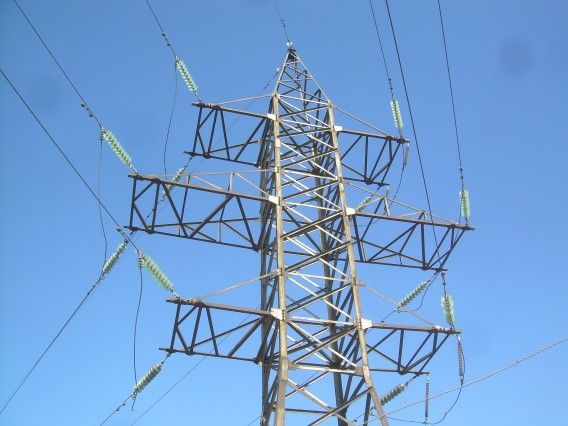BISHKEK (TCA) — Electricity losses now amount to 1.5 billion soms (15 percent of the generated electricity) in Kyrgyzstan. The new National Energy Holding Company, which will bring together nine energy companies, aims to save about 200 million soms by optimizing the control and elimination of duplicating functions, head of the Holding, Aibek Kaliev said.
The Energy Holding, created in January 2016 as part of the reform of the energy sector, plans to reduce losses by introduction of automated electricity metering system. The system excludes direct contact between electricity consumers and metering inspectors, to exclude various abuses. It is planned to install about 50 thousand of new “smart” meters in 2016.
The holding is also going to almost halve the receivables of its member companies. However, MPs are skeptical that this is possible. State-owned enterprises are the main debtors of the energy companies, and many enterprises are under bankruptcy procedures. All of the operating power distribution companies, except for Severelectro, completed 2015 with a loss. Severelectro, the leading power supply company of Kyrgyzstan, provides purchase, transportation, distribution and sale of 51% of electricity generated in the country for the domestic market.
The current electricity tariff does not cover the costs of energy companies, experts say.
The Kyrgyz Government proposed to include state-owned shares of the nine energy companies (Electric Stations, National Electric Network of Kyrgyzstan, distribution companies Severelectro, Vostokelektro, Oshelectro, and Jalalabatelectro, Bishkek Heating Network, Chakan HPP, and newly established Kyrgyz Energy Settlement Center) in the State Property Privatization Program until 2017 and then transfer them to the authorized capital of the National Energy Holding Company which now has no authority over the state shares of the energy companies, since the State Property Management Fund owns state shares in those JSCs.
In accordance with the Kyrgyz legislation, the Parliament should approve this initiative.
There is a lot of debate regarding the creation of the energy holding in the country. It was a necessary measure since there are no legal acts regulating the activities of holding companies in the Kyrgyz legislation, so it was decided to establish a National Energy Holding in the form of open JSC with a 100-percent state share, the State Property Management Fund explained.
A bill on holdings is now being discussed in the Parliament. MPs did not support the bill on the privatization of major energy facilities as they believe that the transfer of large power companies to the energy holding in the proposed way is illegal.
MP Galina Skripkina believes that there will be nothing good in the energy sector under the proposed management system, when the energy holding controls the sector. In addition, she sees some legal conflicts in the draft law on the holding. If the State Property Management Fund is the major shareholder of the energy holding, therefore, the Fund should form the holding’s authorized capital, but the Government is now forming it with the shares of companies included in the energy holding. The Fund cannot act as the main shareholder using the shares of other companies, she explained.
It is unclear why the energy holding is being created under the Economy Ministry but not directly under the Government, the MP added. The ministry being a bureaucratic unit will hinder the holding’s development. The Parliament wants to change the management and control scheme to make the energy sector more independent and profitable.
The Parliament’s Committee on Economic and Fiscal Policy has established a working group to decide how to legally transfer the energy companies to the holding.
The liquidation of the Ministry of Energy and Industry was a failure in the government policy, expert Valentina Kasymova believes.
The Energy Holding was established hastily without approval of the bill on holdings and announcement of the tender for a management company. No clear goals and commitments have been set to turn state-owned energy enterprises into profitable companies.
As a result, the electric power sector has fallen into a debt trap. Market reforms and formation of a legal framework were negated and existing and potential investors have started to quit the energy market. This threatens to the energy security of the country, the expert concluded.









